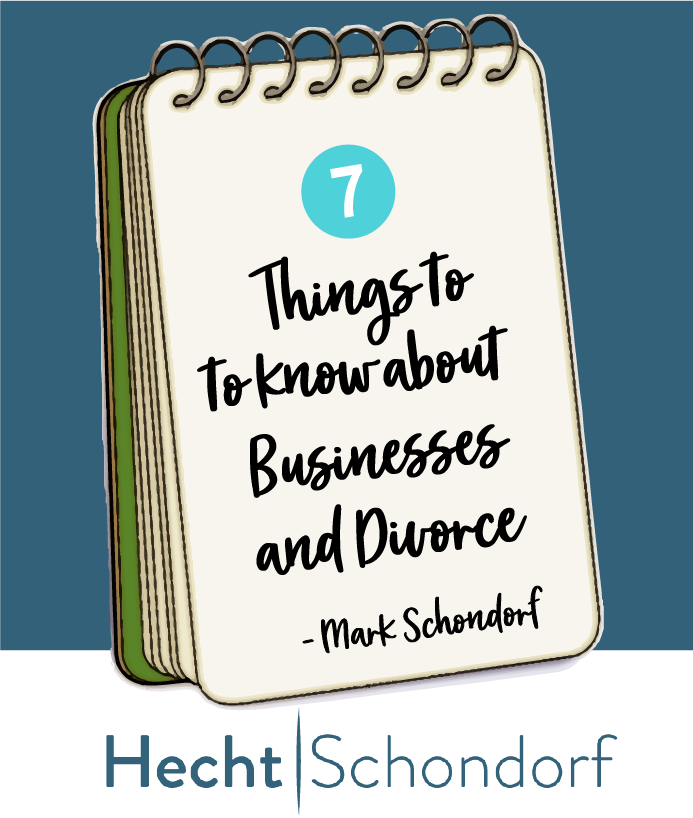If you own a business, or your spouse does, and are contemplating divorce in Illinois, here are 7 things you need to know:
- Businesses Started During The Marriage Are Marital – It doesn’t matter where the money to start a business came from – family, inheritance, or non-marital property. A business that is started during the marriage is a marital business.
- Non-Marital Businesses Can Become Marital – In Illinois, even if a business is non-marital, it can become marital. If a business expands to new locations that operate as independent “units”, then those new “units” will be marital, even if the original business is not.
- A Business Has Value – A business is an asset just like a house or retirement account. Most businesses have value, and the spouse who wants to keep the business must buy the other spouse out. Therefore, a divorce involving a business in Illinois usually needs to be valued by a certified business appraiser.
- Businesses Can Hide A Spouse’s Income – Many times a business owner going through a divorce will insist that their businesses are not profitable. However, a business owner can use the business for personal expenses. This can include cars, meals, travel, vacations, cell phone and computer expenses. A divorce judge may not believe a business owner if their lifestyle outpaces their business income.
- Tax Returns Are Not The End Of The Story – There are many ways that business owners can hide income on a tax return. They can include bogus business expenses, having friends or family listed as employees or contractors, hiding cash in inventory, or taking inappropriate expenses or depreciation. If a divorce involves a business, don’t just believe what you see on the tax return.
- A Forensic Accountant Might Be Necessary – A forensic accountant specializes in finding hidden income on a tax return by comparing the tax return with the business’s own records and the business’s banking records to make sure they match up and are truthful. Moreover, a forensic accountant will be on the lookout for bogus invoices and expenses.
- Not All Divorce Lawyers Understand Business, Finance, and Taxes – Believe it or not, they do not teach accounting in law school, and learning tax returns is not mandatory. Most attorneys who practice family law or divorce do not have a business background or education. When they have to review a tax return, they are stumped. If they do not understand what an accountant is testifying to, they cannot competently argue the case to a judge.
If you are contemplating divorce and own a business or real estate, consult an attorney that has business experience. Attorney Mark Schondorf has a degree in finance, has successfully tried divorce cases with complex finances, and regularly lectures to accounting firms on tax issues in divorce. Please give us a call at 312.878.1202 or complete our Contact Form to get in touch with us. We are happy to help support your legal needs!

